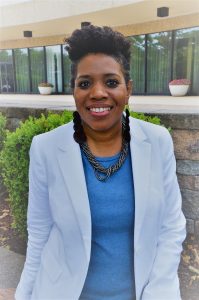When I was a kid I thought of Jesus as my personal superhero. My maternal grandmother Emogene gave me a children’s bible—filled with colorful pictures depicting the works of Jesus. I loved that book and the promise that it held. I likened its gospel message to a comic book filled with villains, action, and Jesus as the Saviour with the mysterious powers. He walked on water, fed the masses, healed the sick, and stood up to the bullies. And the most exciting part of the Good News message was that I too could grow up to be just like Him. for Jesus said, “Very truly, I tell you, the one who believes in me will also do the works that I do and, in fact, will do greater works than these,… .” (John 14:12 NRSV).
It was Jesus, along with the Super Friends, Davey and Goliath that were all part of part of my imaginative childhood faith formation that good and God could conquer evil. This was the 1970s and unfortunately, Saturday morning cartoons didn’t feature many examples of racial diversity. However, I enjoyed Davey and Goliath because 1) he was Lutheran and 2) he had friendships with Jonathan Reed and Cisco both people of color. The mission of the all-white main cast of Super Friends ( Wonder Woman, Superman, Batman, Robin and Aquaman), each with their unique powers, was to fight injustice, to right that which was wrong and to serve all humankind. Who wouldn’t want friends like these?
This week, Starbucks the American coffee company chain was pulled into the national spotlight, when a store manager in the Center City section of Philadelphia, refused restroom access to a black man because he hadn’t made a purchase. Starbucks store guests, Donte Robinson and Rashon Nelson both 23-year-old black males arrived at the Starbucks for a professional business meeting with a local real estate developer Andrew Yaffe. After denying access to the restroom, the store manager called 911. Police officers responded by arresting the two men for trespassing and escorting them away in handcuffs. The treatment of the two men ignited protests and a sit-in at the establishment. Subsequently, the charges against the men were dropped; the manager was removed as an employee from the location; an apology was issued from the Philadelphia Police Commissioner and a personal apology from Starbuck’s CEO Kevin Johnson; followed by a commitment to educate its employees on implicit racial-bias across 8,000 stores. Implicit racial bias refers to the attitudes or stereotypes that affect understanding, actions, and decisions in an unconscious manner. The goal of the training is to promote conscious inclusion and prevent discrimination within and across the organization.
At the heart of this story for me is Melissa DePino—a 50 years old white female that videoed and posted the incident on Twitter. Although the story isn’t about Melissa DePino –it is about what she did in the moment. DePino wasn’t just a bystander while two people of color were handcuffed and humiliated –she used her very human powers to be an upstander. To view the video click pic.twitter.com/0U4Pzs55Ci.
@Starbucks The police were called because these men hadn’t ordered anything. They were waiting for a friend to show up, who did as they were taken out in handcuffs for doing nothing. All the other white ppl are wondering why it’s never happened to us when we do the same thing. pic.twitter.com/0U4Pzs55Ci
— Melissa DePino (@missydepino) April 12, 2018
Melissa DePino is my shero (female hero) of the week — because more than likely by this time next week another story of racism will make headline news. DePino used her white privilege to expose the unfair discriminatory treatment people of color face on a regular basis; she held Starbucks accountable for their actions by exposing the situation and she named her own experience of white privilege. Her post revealed the pervasive reality of racism and white culture. In the curriculum, Transforming White Privilege: A 21st Century Leadership Capacity (an online resource developed by a grant from the Kellogg Foundation) white culture is defined as the dominant, unquestioned standards of behavior and ways of functioning embodied by the vast majority of institutions in the United States. White culture defines who looks professional, who is a threat to society and to whom the rules apply.
What if people of color had more white super friends like Melissa DePino? White leaders that activate their powers whenever they see a person of color in distress because of the evil actions of racism. White leaders willing to put their whole bodies on the line for racial justice. No one can say for sure what could have happened to Rashon Nelson and Donte Robinson if there wasn’t a video of this incident. However, the historical and daily realities of black and brown people that find themselves accused, abused and dehumanized by a society that devalues them is real. The problem of racism in America will not go away with a day of training of 175,000 employees of Starbucks but it is a start. Melissa DePino’s actions should serve as a reminder to all of us that believe in justice that we too are superheroes. Every day we can show up as transformers for racial justice following the example of Jesus the “Holy Disruptor” by speaking up when we see or hear something; informing our networks through social media; showing up in support with others at public actions, rallies and marches, holding institutions accountable and by voting for elected officials that work for equity and inclusion for all of us.

Judith Roberts serves as the ELCA Program Director for Racial Justice. She is mom to Julian Barlow. Lover of good vegan eats, Zumba and documentary films.
The Transforming White Privilege: A 21st Century Leadership Capacity curriculum is available for purchase for $250 for the ELCA visit: https://www.racialequitytools.org/module/overview/transforming-white-privilege.
